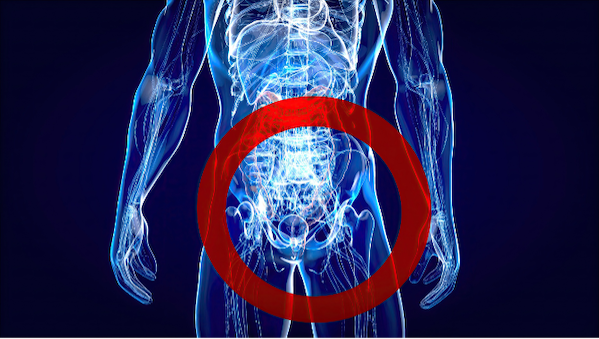Data Presented at ASCO Show Improved Complete Response with Jemperli as a First-Line Treatment for Locally Advanced Rectal Cancer in Patients with Mismatch Repair Deficient Status
June 6, 2024
Source: drugdu
 464
464
Don Tracy, Associate Editor
Results of the Phase II AZUR-1 trial show that 100% of participants achieved a clinical complete response when treated with Jemperli for locally advanced rectal cancer in patients with mismatch repair deficient status.
 Updated results from the Phase II AZUR-1clinical trial of Jemperli (dostarlimab) show the promise of the medication as a treatment for mismatch repair deficient (dMMR) locally advanced rectal cancer in offering an alternative to surgery, according to GSK. The trial, performed in partnership with Memorial Sloan Kettering Cancer Center (MSK), found that Jemperli produced a 100% clinical complete response (cCR) in participants administered the drug, according to data presented at the 2024 American Society of Clinical Oncology (ASCO) Annual Meeting.1
Updated results from the Phase II AZUR-1clinical trial of Jemperli (dostarlimab) show the promise of the medication as a treatment for mismatch repair deficient (dMMR) locally advanced rectal cancer in offering an alternative to surgery, according to GSK. The trial, performed in partnership with Memorial Sloan Kettering Cancer Center (MSK), found that Jemperli produced a 100% clinical complete response (cCR) in participants administered the drug, according to data presented at the 2024 American Society of Clinical Oncology (ASCO) Annual Meeting.1
“The data showing no evidence of disease in 42 patients is remarkable. These results bring us one step closer to understanding the potential of dostarlimab in this curative-intent setting for patients with dMMR locally advanced rectal cancer,” said Hesham Abdullah, SVP, Global Head Oncology, R&D, GSK, in a press release. “We look forward to evaluating dostarlimab in certain colorectal cancers in our ongoing AZUR-1 and AZUR-2 registrational studies.”
Jemperli is a programmed death receptor-1 (PD-1)-blocking antibody that binds to the PD-1 receptor and blocks its interaction with the PD-1 ligands PD-L1 and PD-L2. It has shown potential both as a monotherapy and in combination with standard of care and future novel cancer therapies, particularly in patients with currently limited treatment options.
The global, multi-center, open-label, Phase II registrational AZUR-1 trial clinical trial investigated the efficacy and safety of Jemperli as monotherapy and as a replacement for chemotherapy, radiation and/or surgery for treatment-naïve patients with dMMR/MSI-H locally advanced rectal cancer. The trial included 42 patients who completed treatment with Jemperli, with complete pathologic response or no evidence of tumors present. Additionally, the first 24 patients evaluated were observed with a median follow up of 26.3 months, demonstrating a sustained cCR rate. GSK reported that safety and tolerability of the treatment remained consistent with its previously known safety profile, with no grade three or higher adverse events reported.
Currently, standard-of-care (SoC) for patients with dMMR/microsatellite instability-high (MSI-H) locally advanced rectal cancer includes chemotherapy, radiation, and eventual surgery to remove tumors. Currently, Jemperli has not been approved in any location as a treatment for locally advanced dMMR rectal cancer.1
According to the American Cancer Society, there have been an estimated 46,220 new cases of rectal cancer this year. Overall, colorectal cancer is the second most common cause of cancer deaths for men and women in the United States combined. However, death rates have been dropping consistently over multiple decades due to colorectal polyps being found and removed more consistently before they can develop into cancers.2
“These findings demonstrate the potential of dostarlimab as a novel approach to treating locally advanced dMMR rectal cancer that leads to durable complete tumour regression without the need for life-altering treatment. As a clinician, I’ve seen firsthand the debilitating impact of standard treatment of dMMR rectal cancer and am thrilled about the potential of dostarlimab in these patients,” said Andrea Cercek, MD, Section Head, Colorectal Cancer, co-director, Center for Young Onset Colorectal and Gastrointestinal Cancer, MSK, principal investigator of the Phase II study, in a press release.
Read more on
- China Sino Biopharmaceutical Signs Exclusive Licensing Agreement with Sanofi for Rofalcitinib March 4, 2026
- Gan & Lee Pharmaceuticals’ new PROTAC drug GLR2037 tablets have been approved for clinical trials to enter the field of prostate cancer treatment March 3, 2026
- AideaPharmaceuticals plans to raise no more than 1.277 billion yuan through a private placement to focus on the global clinical development of innovative HIV drugs March 3, 2026
- Giant Exits! Its Star Business Acquired March 3, 2026
- Focusing on cardiovascular and cerebrovascular diseases! OpenMediLead Medical Intelligence Dual Engines Launch Internal Testing, Connecting Drug Development and Clinical Diagnosis in a Closed Loop March 3, 2026
your submission has already been received.
OK
Subscribe
Please enter a valid Email address!
Submit
The most relevant industry news & insight will be sent to you every two weeks.



